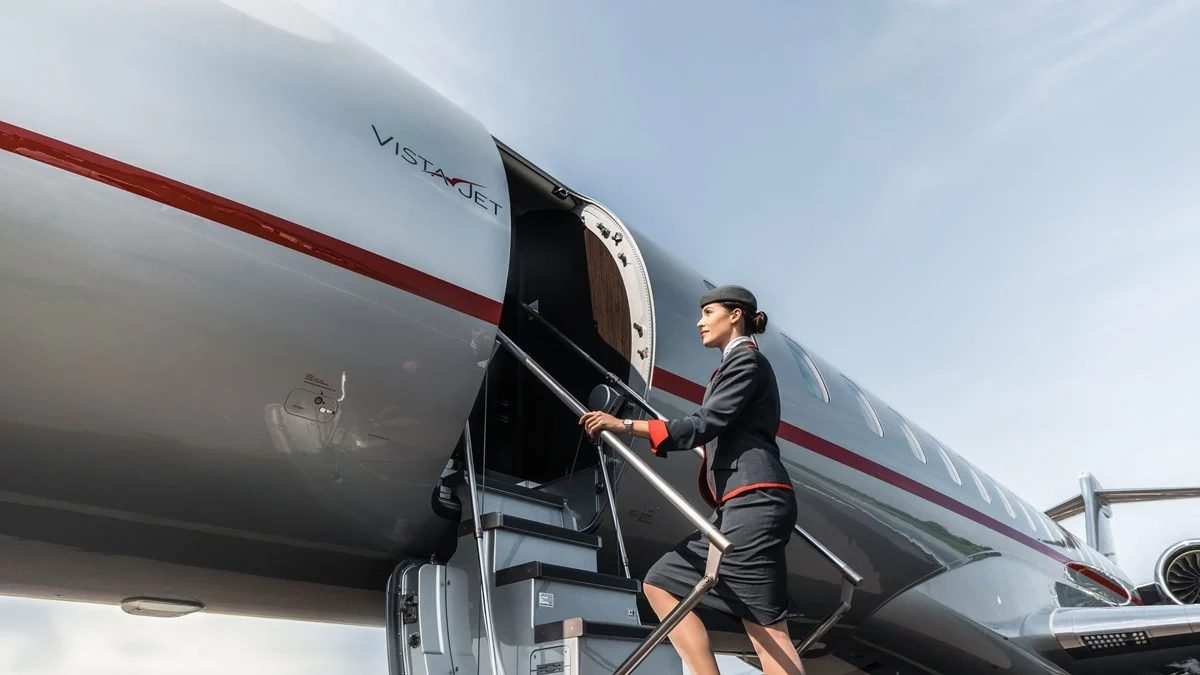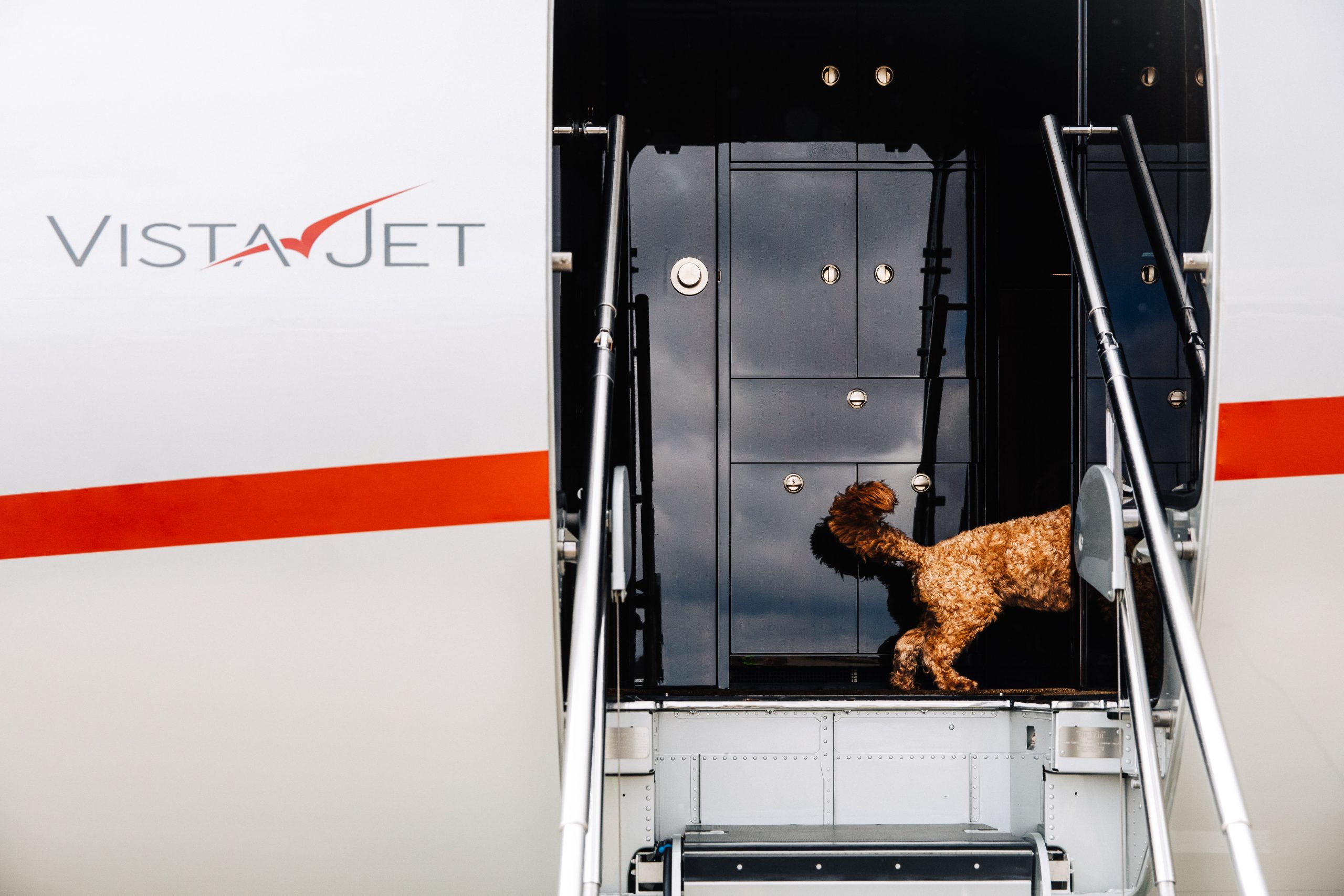
Strategic industry partnerships – linking businesses across different segments of the luxury travel, hospitality and leisure sector – are widely seen as a key component to further the recovery from the impact caused by the COVID-19 pandemic. New research from VistaJet, the first and only global private aviation company, in association with Barton, the high-net-worth insight consultants, demonstrates the far-ranging value placed on partnerships by leading businesses in the sector.
While private aviation has continued to see an influx of new customers, according to VistaJet’s report, The Future of Private Travel, the impact of the COVID-19 pandemic in 2020 has in general been severe for many international luxury travel and hospitality businesses, with over three-quarters (77.8%) of businesses having seen net revenue fall by at least 60% year-on-year, and around 43% seeing a drop of over 90%. Despite a promising vaccine program, many businesses are still cautious about forecasting a quick recovery in the immediate months ahead. However, 25.9% are optimistic and are starting to refocus their offering onto a HNW target group, predicting a rapid recovery to pre-pandemic levels. VistaJet itself saw an increase of 29% in new Members joining in 2020, while its sister brand XO has seen new membership sales up 3x.
Many businesses are already innovating to rethink their operational and commercial strategies – 94.4% having taken or are planning action to innovate their customer service and experience protocols, and 62.3% of businesses have already introduced new offerings, products or services, with increased digital services and more personalized concierge offerings being particularly in-demand.
As businesses look ahead, it is clear that a majority of industry leaders are looking to collaborative partnerships outside of their core business, to help mitigate the negative impact of travel restrictions and ensure their clients continue to experience unparalleled end-to-end service throughout their journey. 86.5% of businesses are taking action to collaborate with other top players within the industry, including hotels, tour designers, private aviation, yachts, chauffeur and concierge services. Additionally, 46.8% have said that partnerships are already helping to generate further revenue during the pandemic, which is notable due to the limitations on travel globally in 2020, while 70% are looking to establish new partnerships within the next 12 months.
Partnerships can provide customers with an integrated service at every stage of their travels, with safer and more reliable experiences in the uncertain world of COVID-19. For example, VistaJet’s own partnerships program, Private World, leverages its relationships to provide customers with a bespoke travel experience, from pre-flight to flight and accommodation, with preferred services already lined up at destination — from yachts to hotels, private islands and retreats. This is just one solution of many within the industry.
Ian Moore, Chief Commercial Officer, VistaJet said: “While the impact of COVID-19 has been significant on a number of luxury travel, hospitality and leisure businesses, it is clear that business aviation is leading this entire sector with a V-shaped recovery. Hence, we are increasing the number of partnerships to help accelerate the whole sector’s path to recovery. As consumers continue to be burdened with complicated travel restrictions, they look for simple solutions they know are safe and reliable. Collaboration between the best mobility and hospitality players on the ground provides not only peace of mind, but also the high-quality service and impeccable standards our customers have come to expect. I continue to be optimistic for the long-term growth and opportunities of the sector.”
Winston Chesterfield, Founder, Barton said: “While almost every industry has been adversely impacted by the pandemic, the global travel and hospitality sector has been the most brutally affected. There is no alternate or flexible working format for most of these businesses; legally mandated closure is often fatal. And yet as this report shows, there is still great hope for the recovery. The eagerness of many wealthy clients to ‘get back out there’ after the initial fear from the virus has been a shot in the arm for the industry. It has also required these wealthy clients to place even greater trust in those organizations enabling this to happen. It is the fulfilment of this trust in the foreseeable future that will help to fire up this giant global ecosystem once more.”

Unleashing Adventure: VistaJet Reports Rising Demand in Pet Travel and Reveals the Must-Visit Destinations for this Summer

Vista to Highlight Continued Growth and Leadership in Asia Pacific at BAAFEx 2025

VistaJet Crafts the Most Incredible Lunar New Year Family Celebrations

VistaJet Wins ‘Best Private Aviation Company Award’ at Robb Report Hong Kong’s Leaders of Luxury Summit 2024